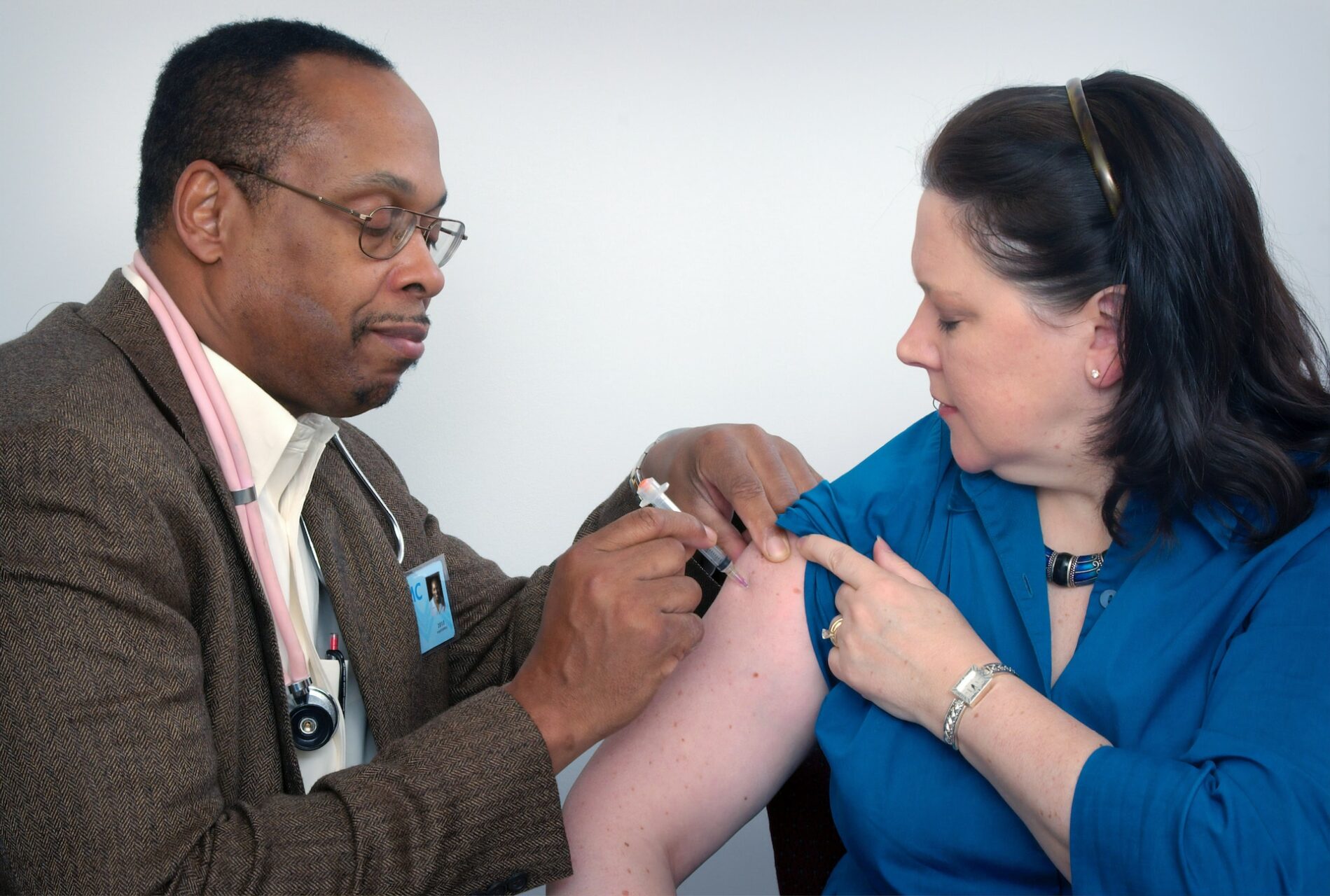Key Takeaways
- A bill sponsored by Hon. Ganiyu Johnson, a Lagos lawmaker, to stop the medical workforce brain drain passed its second reading in the House of Representatives on April 6, 2023.
- Brain drain is a significant issue for Nigeria's health workforce, as a sizable portion is leaving.
- If the bill becomes law, it may impact telemedicine startups in Nigeria, affecting the number of doctors working for these companies.
On April 6, 2023, a bill to stop the exodus of Nigerian medical talent passed its second reading in the House of Representatives.
The bill is titled, “A bill for an Act to Amend the Medical and Dental Practitioners Act, Cap. M379, Laws of the Federation of Nigeria, 2004, to mandate any Nigeria-trained medical or dental practitioner to practice in Nigeria for a minimum of five years before being granted a full licence by the council to make quality health services available to Nigeria.”
If passed into law, Nigerian medical and dental graduates must practise in the country for at least five years before receiving a licence.
Hon Ganiyu Johnson, a Lagos lawmaker representing Oshodi Isolo II Federal Constituency, sponsored the bill.
Why the bill?
It is no longer news that Nigeria is losing a significant portion of its health workforce to brain drain.
The World Health Organization (WHO) reported that the number of doctors in Nigeria decreased from 83,565 in 2016 to 74,543 in 2018.
According to Nigeria Health Watch, the United Kingdom hired 8,983 doctors who studied medicine in Nigeria in November 2021.
The Nigeria Medical Association (NMA) said that less than half of the 80,000 doctors registered with the Medical and Dental Council of Nigeria (MDCN) were active in Nigeria in 2021.

Be the smartest in the room
Give it a try, you can unsubscribe anytime. Privacy Policy.
The Medical and Dental Consultants Association of Nigeria (MDCAN) lamented at the beginning of 2022 that more than 100 medical consultants had left 17 Nigerian tertiary health institutions in the previous two years.
According to Dataphyte, there are 4 doctors for every 10,000 people in Nigeria.
These data demonstrate that brain drain is a significant issue in Nigeria.
Implications of the bill on telemedicine if it becomes law
Founder and CEO of a telemedicine startup, Mobihealth International, Funmi Adewara, claims that the bill if passed, will have little or no negative impact on the telemedicine sector.
She says the bill targets fresh medical graduates who still need to complete their residency programme, which typically lasts six years before they can become consultant specialists.
According to Adewara, these graduates still require years of training to be considered experts, so the demand for more experienced medical professionals will only increase, favouring telemedicine adoption.
Besides, Jesutoni Omiye, Co-founder and CEO of telemedicine startup JEAY Healthcare, says the bill could increase the number of medical professionals working with telemedicine platforms in Nigeria if it becomes law.
For example, Clafiya, a Nigerian healthtech startup, relies on nurses or community health officers to deliver some “level of care” due to the high emigration rate in the country.
According to Jennie Nwokoye, the CEO and Founder of Clafiya, “Brain drain is a problem. That’s why we’re utilising nurses and community health officers who are also the cornerstones of health in our communities but underutilised or underpaid.”
If the bill becomes law, telemedicine startups, including Clafiya, which offers in-patient and virtual consultations, could use more doctors to deliver quality healthcare in the country.
Consequently, a rise in the number of skilled medical professionals that telemedicine platforms can collaborate with might make it easier for them to provide care to more patients.
Telemedicine platforms could improve the quality of care doctors provide by bringing more doctors on board and helping patients access healthcare easily from qualified medical experts with different specialities and expertise.
Further, because more medical professionals would be available, these startups could cut the cost of recruiting and retaining qualified staff. Patients might benefit from the cost savings as telemedicine services may become more accessible and affordable as a result.
As more medical professionals become available, telemedicine startups may face increased competition. It could put downward pressure on prices, making it more difficult for them to compete solely on price.
Because of this, these companies might need to set themselves apart through the quality of their services or the technology they employ to stay competitive.
But will it prevent brain drain?
Even if the bill becomes law, it somewhat has no potential to address the brain drain because the fundamental problems that cause it, such as poor working conditions, low pay, and inadequate infrastructure, might still force medical and dental graduates to leave the nation after completing their mandatory service.
Per Dr Ibrahim Oloriegbe, Chairman of the Senate's health committee, focusing on medical professionals is akin to treating one of the many conditions endangering the life of a dying patient without treating the others.
Yet, despite the compulsory service requirement, there may still be a medical staffing shortage in Nigeria, particularly in rural and underserved areas. Therefore, working with skilled medical personnel could become more difficult for telemedicine platforms.
According to Omiye, "It will be challenging to get enough doctors to work with us, as most of them who just finished med school will be focused on trying to work in hospitals to get their licences.
“Recruiting licensed doctors who have completed the five-year practice benchmark could be difficult, resulting in a doctor shortage for telemedicine platforms.”
So, is the bill the way forward?
The bill is one of several measures to keep doctors from relocating to other countries in search of better job opportunities.
According to Johnson, doctors who received taxpayer-funded training subsidies should give back to society by working for five years in Nigeria before exporting their skills abroad.
Meanwhile, doctors, lawyers, and other Nigerians at home and abroad have all voiced strong opposition to and criticism of the bill, calling it offensive, unreasonable, discriminatory, self-defeating, and an attempt to resurrect modern slavery.
Dr Oloriegbe said Johnson's legislative proposal is not enough to address the problem of the healthcare brain drain.
Oloriegbe stated the section of the proposed law violates the rights to freedom of movement and freedom from discrimination. He argued that since neither a person nor a government could legally deny these rights, "we can't be seeking legal redress through an illegal procedure."
Further, on April 13, 2023, the House of Representatives received a petition about the bill from associations of Nigerian doctors and dentists working abroad.
In the letter to Femi Gbajabiamila, Speaker of the House of Representatives, the Diaspora Medical Associations (DMA) said the bill could exacerbate the country's health crisis and would not accomplish its intended goal of stopping the brain drain.
In the letter, the DMA states that failing to invest in healthcare to create a favourable environment results in a poor care delivery framework, a significant contributor to brain drain.
The DMA also says the healthcare system doesn’t foster a culture of high reliability, professionalism, advancement, or job satisfaction. Other significant factors include extremely inadequate welfare programmes, high levels of insecurity, few employment opportunities, sub-speciality training, and sociopolitical and economic instability.
Corroborating this, Ikpeme Neto, WellaHealth Founder, said in an article that the leading causes of migration are poor working environment and remuneration.
It’s a problem because African countries spend a lot of resources training these professionals, only for them to leave. Healthcare delivery lags, resulting in suffering and death because there aren't enough doctors to fill the gaps.
What’s more, Omiye believes that if the bill becomes law, it will be more detrimental to medical professionals and the healthcare sector than beneficial. In his opinion, forcing doctors to work in Nigeria against their will for a minimum of five years before issuing them a licence doesn’t ensure a safe environment for their professional conduct.





















